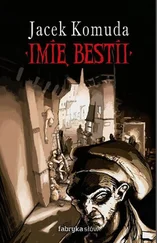Her sources were family stories. Funny anecdotes told by Gladys of which she had no memory whatsoever. Like the morning when she found Elena sucking from the bottle she was supposed to be using to feed her brother. It was how their mother learned why the boy was always hungry so soon after having been fed by his improperly supervised sister. Or the day she covered his face with her excrement. Or the evening she fed him a quarter pound of raisins, which Pablo happily chomped away on, and nearly dehydrated from acute diarrhoea. As teenagers, when these and other stories were recounted, Elena and Pablo swapped cursory smiles, made jokes, but in her brother’s eyes there was a strange gleam, as if he were thinking: See, see how it was you who started it all?
According to her mother, Elena was amazed to discover Pablo’s penis. Why? What did he need it for? Once he learned to stand and walk, she had wanted to pee standing up, too. Family stories, however, excluded one which Elena remembered vividly. The day when, at age seven, she was found fondling her brother, aged four. Her mother spanked her like never before, so she figured she had done something terrible and for many years the memory hid at the back of her mind as some unspeakable atrocity she had to atone for. After the Professor of Child Psychology at the University of Havana expounded on sexual games among children, Elena experienced a huge spiritual relief. The feeling of guilt disappeared and her sexuality improved noticeably.
Perhaps as part of her atonement and to stave off their growing antagonism, but if so unconsciously, she tried hard to become her brother’s favourite playmate. The Parque de la Quinta was their playground. She learned to throw a baseball and skate and ride a bike as he learned to swing a bat, ride a scooter, then a tricycle. They were the object of undisguised envy by many other children in the neighbourhood, those who didn’t have fathers with the special connections required to obtain for their offspring what was unavailable for 99.9 per cent of Cuban children in the 1970s.
In practical terms, however, their childhood was fatherless. Manuel Miranda had been a major in the revolutionary army – the highest rank – since 1958, aged twenty-one. Promoted to the rank of lieutenant two months after joining the rebels in the Sierra Maestra, he was made captain four months later, then appointed major two weeks before Batista fled and the regular Army collapsed. By the time the rebels reached Havana he was a living legend: a hundred stories portrayed him as a fearless, highly adventurous young man who laughed uproariously in the face of death.
Major Miranda had a few wild months in 1959 Havana. Only five feet four, his self-assurance, shoulder-length hair, and personal history made him the third most sought-after man in the Cuban capital (after Fidel Castro and Camilo Cienfüegos). Gladys Garcés, at the time one of the chorus girls of the world-renowned Tropicana, was two inches taller and two years older than the major, had a statuesque figure, and danced the way palm fronds sway in the afternoon breeze – with an almost magic sensu-ousness. They met, made love, and the country boy lost his heart for the first time. He didn’t want to wake up from the dream and persuaded the young woman to quit the cabaret and marry him in June. After four years of nightclub life and several dozen men, Gladys was too well versed in the vagaries of passion to fall madly in love with anyone, but she felt in her bones that marrying a swashbuckling hero considerably reduced the uncertainty of a future in which millionaires, business executives, and their bejewelled mistresses were threatened species.
Right then the struggle against American imperialism began. Miranda spent weeks, sometimes months, in a bunker somewhere waiting for the American invasion; in the Bay of Pigs, crushing Brigade 2506; in Algeria, fighting the Moroccans; hunting counter-revolutionaries in the mountains of Las Villas; training guerrillas to foster subversion in Latin America. Sometimes of an evening, taking time out from his action-packed life, Major Miranda would insert his key into the lock of the confiscated Miramar apartment he had been assigned by the Housing Institute in 1960, and his kids would spend a couple of days playing with Daddy.
Neither she nor Pablo were old enough to discern the reasons behind their parents’ divorce. It hadn’t been a normal home, but the break-up was still a shock because Gladys, who never talked much about her husband and didn’t seem to be particularly distraught by his prolonged absences, all of a sudden spent hours cursing the son of a bitch, a term that, like countless other expletives, she had learned in the dressing rooms of the Tropicana. She also blamed some nameless whore for her misfortune.
After Pablo completed second grade – or was it third? – school became an important dividing factor. The boy resented his sister’s tutoring, which Gladys forced Elena to give him at home. He also detested her dedication to school issues, and her being elected Head of the Detachment of Pioneers, the children’s communist organization. It was worse in junior high. Having inherited her mother’s genes, at twelve Elena was the most beautiful and popular girl from among 165 female students. Pablo at nine was an exact copy of his father: Short, lean, and bold to the point of having been nicknamed ‘El Loco’ – The Wacko.
In the following three or four years, the two personalities became the centre of contrasting groups. Pablo was the undisputed leader of five or six angry, frustrated, and rebellious teenagers, kids from one-parent homes most of them, who played hooky, roamed the streets, and flunked exams. Elena was his exact opposite. She became president of her school’s chapter of the Federation of High School Students at fifteen, valedictorian of her class at seventeen. They were living in a peculiar symbiosis: different species under the same roof, avoiding each other, always on a collision course.
Tragedy struck one evening in 1980, just after General Miranda returned unannounced from Angola only to find his second wife, an extremely beautiful brunette thirteen years younger than him, in his own bed with a next-door neighbour. The general drew his nine-millimetre Maka-rov and emptied its first clip into the two pleading lovers. Their legs and arms kept jerking spasmodically, so Miranda changed clips and made sure neither lived to tell the tale. Then he drove his Lada to the Ministry of the Revolutionary Armed Forces and turned himself in.
In the ensuing three or four months the lives of Elena and Pablo became kaleidoscopes of incomprehension, apprehension, and irritability that little by little evolved into indifference and insensitivity, then to some measure of euphoria and consolation when they learned the general had been sentenced to thirty years in prison, not the death penalty, which was what a much-hated prosecutor recommended.
Like most Cubans, Gladys was firmly convinced that lambasting the living is not as unacceptable as speaking ill of the dead. So, relieved that Elena and Pablo had been spared from further traumas, she would venomously repeat to them, eighteen and fifteen years old respectively, how men become assholes when they think with their little head instead of their bigger one. ‘You’ll regret this,’ she claimed to have warned her husband the day he packed his belongings and moved out, ‘when you catch the slut cheating on you and remember that you renounced the decent home and wife you once had.’
Since the mid-1960s, the Cuban media has been instructed to ignore all sorts of scandals involving top communist officials; the notion that all of them were paradigms of human perfection couldn’t be jeopardized. But the story was too juicy to put a lid on. Generals and colonels stationed in faraway lands considered it prudent to relate the tragic drama to their usually younger and beautiful wives and/or mistresses, who in turn told it to their friends and relatives. From the island’s easternmost town to its westernmost village, hundreds of thousands learned what had happened by tuning in to Radio Bemba – Lip Radio – among them a neighbour of Gladys and her kids who considered it his duty to inform a few discreet friends on the block. The news spread like wildfire.
Читать дальше












